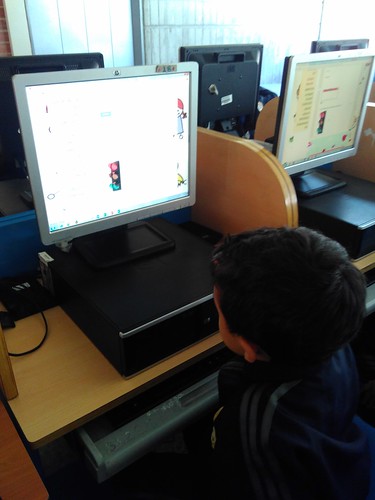Her by initiating effective immune responses or by inducing tolerance, depending on the presence or absence of danger associated molecular patterns within endocytosed particles [2]. Due to their physiological properties [3] DCs have been safely and successfully used in clinical trials aimed at stimulating an efficient immune response against tumors in humans [4,5]. However, only one recent study has taken advantage of their specific tolerogenic properties by utilizing CD40, CD80 and CD86 antisense transfected DCs to treat diabetic patients [6]. The tolerogenic properties of immature autologous DCs have already been documented in healthy human volunteers, providing proof ofprinciple that systemic antigen-specific T-cell tolerance can be achieved using this approach in humans [7]. However, an important concern when designing DC-based immunotherapy protocols is whether immature DCs might inadvertently receive in vivo maturation signals in an inflammatory microenvironment, either from pro-inflammatory cytokines and/or pathogen-derived molecules or whole microorganisms [8]. An alternative to the use of immature DCs is to generate tolerogenic DCs (tol-DCs). The addition of immunosuppressive agents, pharmacological modulation, or inhibitory cytokines during the process of DC differentiation from monocytes influences the functional properties of the resulting cells [9,10]. Recently, a study between clinical-grade DCs compared the phenotypic characterization of human DCs using different tolerogenic agents [11]. These studies demonstrate that activation of tol-DCs might actually be a critical step in optimizing the re-stimulation and/or expansion of functional Tregs rather than in maintaining their immaturity [12,13]. Alternative activat?ed DCs differentially regulated naive and memory T cells; ?specifically, 23977191 naive T cells were LED-209 web sensitized and polarized towards a low IFN-c/high IL-10 cytokine profile, whereas memory T cells were anergized in terms of proliferation and cytokine production [14]. The studies described above were carried out using animalTolerogenic Dendritic Cells Response to Bacteriamodels or DC lines [15,16]. However, the use of reagents that fail to fulfil GMP requirements, such as LPS, cytokines or fetal calf/ RE-640 bovine serum [17], makes this approach unfeasible for human trials [18]. An important 23727046 obstacle to overcome in translating this method to a human setting is the need for reproducible, highquality stable tol-DCs [19]. Furthermore, given the importance of genetic predisposition in the majority of immune mediated inflammatory disorders, it needs to be proven  that tol-DCs produced from patients’ monocytes have the same tolerogenic functions as those of healthy controls. In this study, we characterized the tolerogenic properties of monocyte-derived DCs from healthy donors and Crohn’s disease patients generated under clinical-grade conditions. In addition, we evaluated not only the stability of the tolerogenic phenotype after washing out all of the factors, but also the activation profile of those cells when exposed to different Gram-negative enterobacteria a physiologic stimuli that tol-DCs will likely encounter after administration to patients. This approach takes advantage of the complexity of the microbes that provide, at the same time, a variety of stimuli for innate receptors to elicit polarizing cytokines.Dr. Ramon Vilella, Dept of Immunology Hospital Clinic de Barcelona) and FITC-labeled MHC class II (BD-Pharmingen). Primar.Her by initiating effective immune responses or by inducing tolerance, depending on the presence or absence of danger associated molecular patterns within endocytosed particles [2]. Due to their physiological properties [3] DCs have been safely and successfully used in clinical trials aimed at stimulating an efficient immune response against tumors in humans [4,5]. However, only one recent study has taken advantage of their specific tolerogenic properties by utilizing CD40, CD80 and CD86 antisense transfected DCs to treat diabetic patients [6]. The tolerogenic properties of immature autologous DCs have already been documented in healthy human volunteers, providing proof ofprinciple that systemic antigen-specific T-cell tolerance can be achieved using this approach in humans [7]. However, an important concern when designing DC-based immunotherapy protocols is whether immature DCs might inadvertently receive in vivo maturation signals in an inflammatory microenvironment, either from pro-inflammatory cytokines and/or pathogen-derived molecules or whole microorganisms [8]. An alternative to the use of immature DCs is to generate tolerogenic DCs (tol-DCs). The addition of immunosuppressive agents, pharmacological modulation, or inhibitory cytokines during the process of DC differentiation from monocytes influences the functional properties
that tol-DCs produced from patients’ monocytes have the same tolerogenic functions as those of healthy controls. In this study, we characterized the tolerogenic properties of monocyte-derived DCs from healthy donors and Crohn’s disease patients generated under clinical-grade conditions. In addition, we evaluated not only the stability of the tolerogenic phenotype after washing out all of the factors, but also the activation profile of those cells when exposed to different Gram-negative enterobacteria a physiologic stimuli that tol-DCs will likely encounter after administration to patients. This approach takes advantage of the complexity of the microbes that provide, at the same time, a variety of stimuli for innate receptors to elicit polarizing cytokines.Dr. Ramon Vilella, Dept of Immunology Hospital Clinic de Barcelona) and FITC-labeled MHC class II (BD-Pharmingen). Primar.Her by initiating effective immune responses or by inducing tolerance, depending on the presence or absence of danger associated molecular patterns within endocytosed particles [2]. Due to their physiological properties [3] DCs have been safely and successfully used in clinical trials aimed at stimulating an efficient immune response against tumors in humans [4,5]. However, only one recent study has taken advantage of their specific tolerogenic properties by utilizing CD40, CD80 and CD86 antisense transfected DCs to treat diabetic patients [6]. The tolerogenic properties of immature autologous DCs have already been documented in healthy human volunteers, providing proof ofprinciple that systemic antigen-specific T-cell tolerance can be achieved using this approach in humans [7]. However, an important concern when designing DC-based immunotherapy protocols is whether immature DCs might inadvertently receive in vivo maturation signals in an inflammatory microenvironment, either from pro-inflammatory cytokines and/or pathogen-derived molecules or whole microorganisms [8]. An alternative to the use of immature DCs is to generate tolerogenic DCs (tol-DCs). The addition of immunosuppressive agents, pharmacological modulation, or inhibitory cytokines during the process of DC differentiation from monocytes influences the functional properties  of the resulting cells [9,10]. Recently, a study between clinical-grade DCs compared the phenotypic characterization of human DCs using different tolerogenic agents [11]. These studies demonstrate that activation of tol-DCs might actually be a critical step in optimizing the re-stimulation and/or expansion of functional Tregs rather than in maintaining their immaturity [12,13]. Alternative activat?ed DCs differentially regulated naive and memory T cells; ?specifically, 23977191 naive T cells were sensitized and polarized towards a low IFN-c/high IL-10 cytokine profile, whereas memory T cells were anergized in terms of proliferation and cytokine production [14]. The studies described above were carried out using animalTolerogenic Dendritic Cells Response to Bacteriamodels or DC lines [15,16]. However, the use of reagents that fail to fulfil GMP requirements, such as LPS, cytokines or fetal calf/ bovine serum [17], makes this approach unfeasible for human trials [18]. An important 23727046 obstacle to overcome in translating this method to a human setting is the need for reproducible, highquality stable tol-DCs [19]. Furthermore, given the importance of genetic predisposition in the majority of immune mediated inflammatory disorders, it needs to be proven that tol-DCs produced from patients’ monocytes have the same tolerogenic functions as those of healthy controls. In this study, we characterized the tolerogenic properties of monocyte-derived DCs from healthy donors and Crohn’s disease patients generated under clinical-grade conditions. In addition, we evaluated not only the stability of the tolerogenic phenotype after washing out all of the factors, but also the activation profile of those cells when exposed to different Gram-negative enterobacteria a physiologic stimuli that tol-DCs will likely encounter after administration to patients. This approach takes advantage of the complexity of the microbes that provide, at the same time, a variety of stimuli for innate receptors to elicit polarizing cytokines.Dr. Ramon Vilella, Dept of Immunology Hospital Clinic de Barcelona) and FITC-labeled MHC class II (BD-Pharmingen). Primar.
of the resulting cells [9,10]. Recently, a study between clinical-grade DCs compared the phenotypic characterization of human DCs using different tolerogenic agents [11]. These studies demonstrate that activation of tol-DCs might actually be a critical step in optimizing the re-stimulation and/or expansion of functional Tregs rather than in maintaining their immaturity [12,13]. Alternative activat?ed DCs differentially regulated naive and memory T cells; ?specifically, 23977191 naive T cells were sensitized and polarized towards a low IFN-c/high IL-10 cytokine profile, whereas memory T cells were anergized in terms of proliferation and cytokine production [14]. The studies described above were carried out using animalTolerogenic Dendritic Cells Response to Bacteriamodels or DC lines [15,16]. However, the use of reagents that fail to fulfil GMP requirements, such as LPS, cytokines or fetal calf/ bovine serum [17], makes this approach unfeasible for human trials [18]. An important 23727046 obstacle to overcome in translating this method to a human setting is the need for reproducible, highquality stable tol-DCs [19]. Furthermore, given the importance of genetic predisposition in the majority of immune mediated inflammatory disorders, it needs to be proven that tol-DCs produced from patients’ monocytes have the same tolerogenic functions as those of healthy controls. In this study, we characterized the tolerogenic properties of monocyte-derived DCs from healthy donors and Crohn’s disease patients generated under clinical-grade conditions. In addition, we evaluated not only the stability of the tolerogenic phenotype after washing out all of the factors, but also the activation profile of those cells when exposed to different Gram-negative enterobacteria a physiologic stimuli that tol-DCs will likely encounter after administration to patients. This approach takes advantage of the complexity of the microbes that provide, at the same time, a variety of stimuli for innate receptors to elicit polarizing cytokines.Dr. Ramon Vilella, Dept of Immunology Hospital Clinic de Barcelona) and FITC-labeled MHC class II (BD-Pharmingen). Primar.